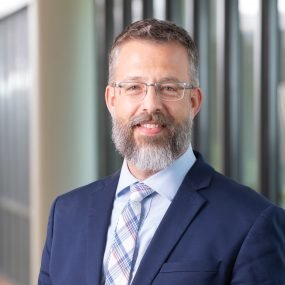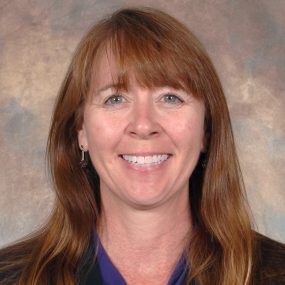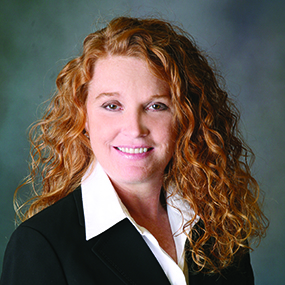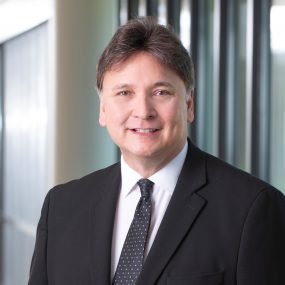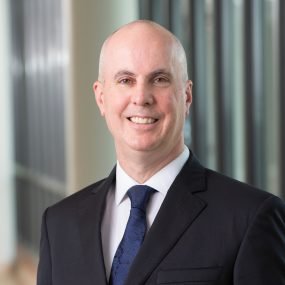Co-occurring Disorders
Residential Treatment of Co-occurring Disorders at Lindner Center of Hope
Mental illness can be difficult to treat and can impair a person’s functionality if not properly diagnosed. This is especially true when patients are struggling with two or more mental disorders at the same time. When this happens, it is called a co-occurring condition. (Similarly, multiple physical health issues often occur discovered at the same time.) Some examples of co-occurring conditions include a person who is depressed and also misuses alcohol or a patient with an eating disorder who also suffers from bipolar disorder.
Co-occurring conditions are common, yet complex. Nearly half (45 percent) of those with any mental disorder meet criteria for having two or more disorders, according to the National Institute of Mental Health (NIMH). The good news is that effective diagnostics and compassionate care are available. Often, patients are aware that they need help for an addiction or mental illness, but do not realize that another mental disorder may be the root cause or may be exacerbating symptoms or behaviors. The clinicians at Lindner Center of Hope specialize in peeling back the layers of co-occurring conditions. They use a combination of established protocols and current research to reveal underlying causes. These proven techniques help them truly understand the complex nature of co-occurring conditions, recommend the appropriate level of care, and create a tailored treatment plan. When designing a treatment plan, the team also considers the type of disorders as well as the progression and severity of the illnesses.
Research has shown that treating two or more conditions at the same time by a multidisciplinary team is the most effective treatment approach. That’s why Lindner Center of Hope provides patients with a range of integrated care – from acute crisis intervention to less intensive maintenance and wellness visits – all under one roof.
Symptoms of Co-Occuring Disorders
Correctly identifying co-occurring conditions can be challenging. Often psychiatric symptoms can be masked by alcohol or drugs. Professionals recognized for their leadership in identifying and treating co-occurring conditions at Lindner Center of Hope conduct an initial diagnostic assessment that establishes solid groundwork for progressive therapies and treatment.
Individuals with co-occurring conditions suffer from an addiction and a mental illness or two or more mental illnesses at the same time. An addictive disorder occurs when the use of a substance—such as alcohol or drugs—or a behavior – such as excessive gambling, shopping or gaming—causes significant problems in a person’s life. A mental illness may include mood disorders (such as depression or bipolar disorder), anxiety, obsessive compulsive disorder (OCD), or another mental illness.
Although symptoms of co-occurring conditions can vary greatly, the following are possible signs:
- Feeling of helplessness or hopelessness
- Isolation, social withdrawal, loss of interest in daily activities
- Inability to experience pleasure
- Extreme appetite, weight or sleep changes
- Family problems
- Financial problems or problems at school or work
- High risk behaviors especially while driving and incarcerated
- Multiple admissions to hospitals or mental health treatment centers
- Increased number of visits to the emergency room or physician for medical care
Causes of Co-Occuring Disorders
Because co-occurring conditions describes a condition in which the patient experiences more than one mental disorder as well as a possible addiction, the causes can vary significantly. Co-occurring conditions can create significant conflict, stress and frustration for the individual as well as family, friends and even employers. Lindner Center of HOPE can help.
Although leading researchers are still actively exploring the specific causes of why certain individuals experience co-occurring conditions, most agree that mental illnesses and addictions are caused by a complex interaction of biological, environmental, psychological, and even possible medical factors:
- Biological factors may include genetic (or hereditary) and neurochemical differences in the individual’s brain.
- Environmental factors can include stress, quality of home life, exposure to violence or abuse, and unique personal experiences.
- Individuals with certain temperaments or personality features may be more susceptible to certain mental illnesses.
- Psychosocial, social and cultural factors include peer influence, high stress living environments, and availability of substances.
Fortunately, progressive, proven treatment is available through Lindner Center of HOPE. A leading team of clinicians and licensed psychotherapists can accurately diagnose and guide patients suffering from co-occurring conditions toward a life of recovery.
Lindner Center of Hope: Treatment of Co-Occuring Disorders
Patients with co-occurring conditions begin recovery with a thorough mental health and addiction assessment. Because co-occurring conditions can vary greatly, clinicians at Lindner Center of HOPE take precise care to ensure that all integrated treatment programs are personalized to the specific needs of the individual.
People with co-occurring conditions suffer from an addiction and a mental illness or two or more mental illnesses at the same time. An addictive disorder occurs when the use of a substance—such as alcohol or drugs—or a behavior – such as excessive gambling, shopping or gaming—causes significant problems in a person’s life. A mental illness may include mood disorders (such as depression or bipolar disorder), anxiety, obsessive compulsive disorder (OCD), or another mental illness.
The team specializing in co-occurring conditions works collaboratively to assess and treat co-occurring conditions for better outcomes. Treatment begins by stabilizing the patient mentally as well as physically, providing detoxification if necessary. Careful monitoring ensures progressive treatments remain responsive to the patient’s symptoms and mental health needs.
Integrated Approach to Therapy, Counseling, Education and Treatment
Specialists at Lindner Center of Hope are recognized leaders in the use of proven and progressive therapies to counter co-occurring mental health and addiction conditions. Integrated therapies may include:
- Medication Therapy
- Community Support Groups
- Ongoing monitoring and relapse prevention
- Additional counseling and support for patients and families
- Vocational support
- As well as MET, CBT, and DBT
Motivational Enhancement Therapy (MET)
This patient-centered therapy helps individuals increase awareness of potential problems, consequences and risks associated with specific behaviors as well as envision a better future and discover intrinsic motivation to change.
Cognitive Behavioral Therapy (CBT)
This progressive therapy helps identify and challenge a patient’s negative thought patterns and encourages behaviors designed to counter-act depressive symptoms.
Dialectical Behavioral Therapy (DBT)
Clinical programming at Lindner Center of Hope is based in the most current, rigorous, scientific evidence in diagnosis and in the effectiveness of treatments. One of the newest, most promising therapies is Dialectical Behavioral Therapy (DBT). No other facility in the greater Cincinnati area offers more expertise in DBT than the Lindner Center of Hope. Clinicians are trained to use DBT to support the development of skills and mindfulness, interpersonal effectiveness, distress tolerance, and emotion regulation. These skills assist patients in avoiding the extreme behaviors that impact ability to function. Therapeutic interventions are offered in a manner that validates the person and the experience while encouraging change to a more successful and fulfilling life.
Leading research completed by a skilled global staff greatly enhances every level of care at Lindner Center of Hope. Learn about the different levels of care for co-occurring conditions:
- Inpatient Treatment
- Outpatient Treatment
- Intensive Outpatient Program
- Residential Program at Sibcy House
- Research Studies
- Support Groups
Inpatient Treatment
Inpatient services at Lindner Center of Hope provide scientifically advanced and compassionate care for patients needing assessment for co-occurring conditions and stabilization. Care focuses on acute crisis intervention and detoxification from substances when needed. Psychotherapists and specialists in addiction and mental health combine progressive treatment strategies with carefully monitored medication. Family members and support groups become actively involved in helping the patient make important life changes.
Who Benefits
- Adults and adolescents (11 and older) who are struggling with co-occurring conditions and are not responding to outpatient treatment
- Patients who would benefit from a brief hospitalization for stabilization
Outpatient care
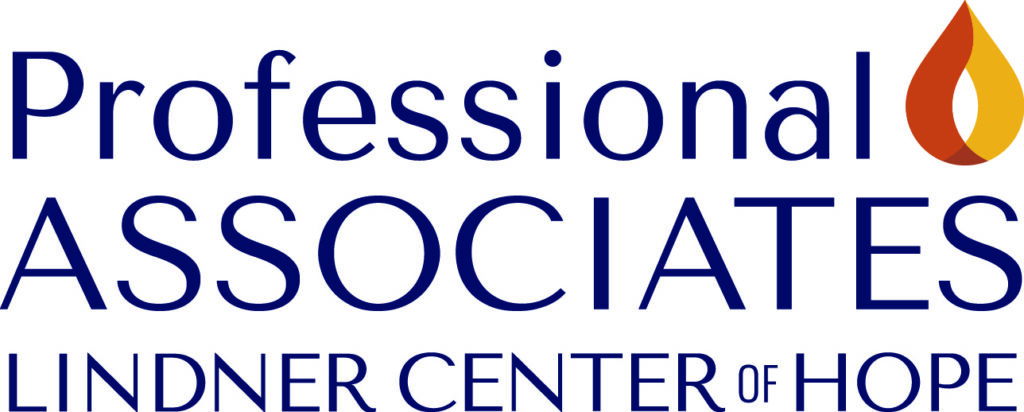 Patients who are dealing with mental illness and the challenge of substance or behavioral addictions at the same time can recover with integrated, proven outpatient treatment. Highly qualified clinicians and experienced professionals from the clinical practice group, Lindner Center of Hope Professional Associates (LCOHPA), work with patients and family members to accurately identify symptoms of co-occurring conditions and underlying causes. What follows is a personal treatment plan that uses proven and progressive therapies and techniques. Patients struggling with co-occurring conditions also participate in group and family counseling while maintaining normal life activities.
Patients who are dealing with mental illness and the challenge of substance or behavioral addictions at the same time can recover with integrated, proven outpatient treatment. Highly qualified clinicians and experienced professionals from the clinical practice group, Lindner Center of Hope Professional Associates (LCOHPA), work with patients and family members to accurately identify symptoms of co-occurring conditions and underlying causes. What follows is a personal treatment plan that uses proven and progressive therapies and techniques. Patients struggling with co-occurring conditions also participate in group and family counseling while maintaining normal life activities.
Who Benefits
- Patients suffering from co-occurring conditions who are able to participate successfully in regularly scheduled outpatient visits on their own or with family members or support individuals
- Patients who can work closely with specialists in identifying and treating co-occurring conditions and addiction
Partial Hospitalization for Adults
Lindner Center of Hope is committed to providing the full spectrum of care for adults suffering with mental illness. When an adult’s daily functioning is impaired by mental illness, yet criteria is not met for hospitalization, the Adult Partial Hospitalization Program (PHP) provides intensive treatment in a safe and therapeutic environment, without full hospitalization. Partial hospitalization helps patients progress to the point where standard outpatient appointments can be effective. This program is also used as a step-down program from hospitalization, with the intent of gradually easing an adult back into their home environment.
The program operates Monday through Friday from 8:30 a.m. to 4:30 p.m. and enrollees attend 5 days per week for up to 4 weeks. The program offers some flexibility in design, so that the PHP treatment team and the enrollee can work together to create the right treatment plan for each individual.
Who Benefits
The Adult Partial Hospitalization Program (PHP) at Lindner Center of Hope benefits individuals, ages 18 and older, who are experiencing emotional or behavioral issues significant enough to affect daily functioning or quality of life. Patients may be suffering with diagnoses including, but not limited to:
- Mood disorders, such as depression and bipolar disorder
- Anxiety disorders
- Eating disorders
- Adjustment disorders
- Thought disorders not requiring hospitalization, such as paranoia and hallucinations
- Patients who need a more intensive, structured program than traditional outpatient visits can provide
- Patients who may not require hospitalization, but who may benefit from hands-on intensive day-long therapy without requiring an overnight stay
- Patients transitioning from hospitalization who need on-going, intensive care
Intensive Outpatient Program
The Intensive Outpatient Program (IOP) at Lindner Center of Hope is an intensive treatment option for the person experiencing challenges with substance abuse and/or co-occurring disorders. The IOP provides a therapeutic and supportive environment for patients struggling with substance use problems and abstinence. The IOP at Lindner Center of HOPE is unique in its ability to work with patients struggling with dual diagnosis or multiple diagnoses. The program can also accommodate patients on medication, including Suboxone.
Learn more about the Intensive Outpatient Program here.
Premier Assessment and Residential Treatment for Co-Occurring Disorders
Lindner Center of Hope’s premier adult assessment and residential services program recognizes the importance of identifying complex comorbidity to improving patient outcomes. In fact, in-depth evaluation and assessment is essential for determining the next steps of treatment of complex comorbidity.
Mental illness, addiction, trauma, OCD, attentional deficits, and more are often complexly interwoven. Every person’s experience and life is also unique. Clarifying or teasing out as many facets of a person’s life as possible through evaluation and assessment can help make an accurate diagnosis and workable treatment plan attainable.
Sibcy House at Lindner Center of Hope is a specialized and enhanced, rich therapeutic residential environment offering stabilizing evaluation, comprehensive diagnostic assessment, and residential treatment programs for individuals age 18 and older, suffering with complex, co-morbid mental health and addiction issues. A renowned, multi-disciplinary clinical team uses state-of-the science technology, evidence-based treatment modalities (including DBT an ERP) and clinical expertise to accurately assess patients, create individualized treatment plans, and provide intensive treatment through individualized and group therapy to improve overall treatment trajectory.
Our residential offerings provide an individualized path to the insights and solutions sought by patients, families, and referral sources. At Sibcy House, we can:
- Evaluate and stabilize presenting issues
- Observe and assess a patient’s functioning through group therapy and therapeutic milieu involvement
- Gather insights through multidisciplinary treatment team rounding and collaboration
- Utilize testing instruments tailored to patient’s specific needs
- Develop comprehensive clinical recommendations and present them in a structured feedback meeting for families, partners, and referrers
Learn more about how Sibcy House addresses co-occurring disorders. (https://lindnercenterofhope.org/sibcy-house-adult/)
The Research Institute at Lindner Center of HOPE
Typically it can take up to 17 years before research findings become fully integrated into routine diagnostics and treatment. However, at Lindner Center of HOPE, research informs patient care each and every day.
The Research Institute at Lindner Center of HOPE, in affiliation with the University of Cincinnati (UC) College of Medicine, conducts research to better prevent, diagnose and treat common mental illnesses, including co-occurring conditions.
Current Research Studies
Cutting-edge research in genetics, brain imaging, psychopharmacology and psychotherapy provides new methods and treatments for co-occurring conditions. Top researchers closely integrate research studies into proven programs to benefit patients and further treatment. Patients interested in participating in specific studies apply through Lindner Center of HOPE.
Visit the Research Institute page on this Web site for more information about current studies.
Specialized Team Focused on Effective Treatment for Co-Occuring Disorders
The team at Lindner Center of HOPE is recognized for their experience, training, research, and results in the treatment of co-occurring conditions.
Team members apply their expertise in the treatment of co-occurring conditions to simultaneously address symptoms and underlying causes through:
- Psychiatric evaluation and careful assessment of co-occurring mental health issues and addictions
- Individually tailored treatment approach which combines Motivational Enhancement Therapy (MET), Cognitive Behavioral Therapy (CBT), Dialectical Behavioral Therapy (DBT) , Community Group Support therapy and carefully monitored medication treatment as necessary
- Family therapy and support
Each patient’s treatment team may also include the following healthcare professionals:
- Primary Care Physicians
- Doctoral- or Masters-level Therapists and Psychology Interns
- Social Work Staff
- Registered Nurses, Licensed Practical Nurses and Mental Health Specialists
- Dietitian
- Employment Specialist
- Spiritual Care Coordinator
- Community Psychiatric Support Specialist
Lindner Center of HOPE Residential Programs: Resources for Co-occurring Disorders
Is it time to learn more about co-occurring conditions? Patients suffering from co-occurring conditions and their families can use these resources to better understand their conditions and take the first steps toward treatment and recovery.
Co-occurring Conditions Screening
Take this self test developed by experts in co-occurring conditions to help you determine if you may need a professional evaluation.
RESOURCES
Web sites, books, articles, and brochures related to Mood Disorders
Web sites, books, articles and brochures related to Eating Disorders
Web sites, books, articles and brochures related to Anxiety
Web sites, books, articles and brochures related to OCD
Web sites, books, articles and brochures related to Substance and Behavioral Addictions
Residential Treatment: Co-occurring Disorder Screening Questions
Please answer yes or no to each of the following:
Questions about Mental Health
- Have you been evaluated for or have you been diagnosed with mental illness, such as anxiety, depression, obsessive compulsive disorder, bipolar illness, panic disorder, addiction, phobias or schizophrenia?
- Do you experience feelings of helplessness, hopelessness, worthlessness or guilt?
- Have you lost interest in daily activities and find it difficult to experience pleasure?
- Have you experienced a change in eating or sleep habits, or level of energy?
- Do you often avoid social situations and prefer to be by yourself?
- Are you pursuing high risk behaviors, particularly while driving?
- Are you experiencing problems at home, work, school or in your finances?
Questions about Substance Use
- Does the use of substances (alcohol or drugs) negatively affect your role as an employee, spouse, parent, or friend?
- Do you use substances in situations where it is hazardous?
- Have you ever been arrested for public intoxication, disorderly conduct, domestic violence, or DUI?
- Has the use of substances resulted in arguments or fighting at work, home or other places?
- Has a friend, relative, doctor, or co-worker been concerned about your drinking or suggested you cut down?
These questions are intended to help a person recognize if he or she may be struggling with a co-occurring condition. If you are experiencing these symptoms, it is recommended that you seek a professional evaluation to determine the best course of treatment.
For an assessment and consultation with a licensed therapist at Lindner Center of Hope, please call 513-536-HOPE (4673).
